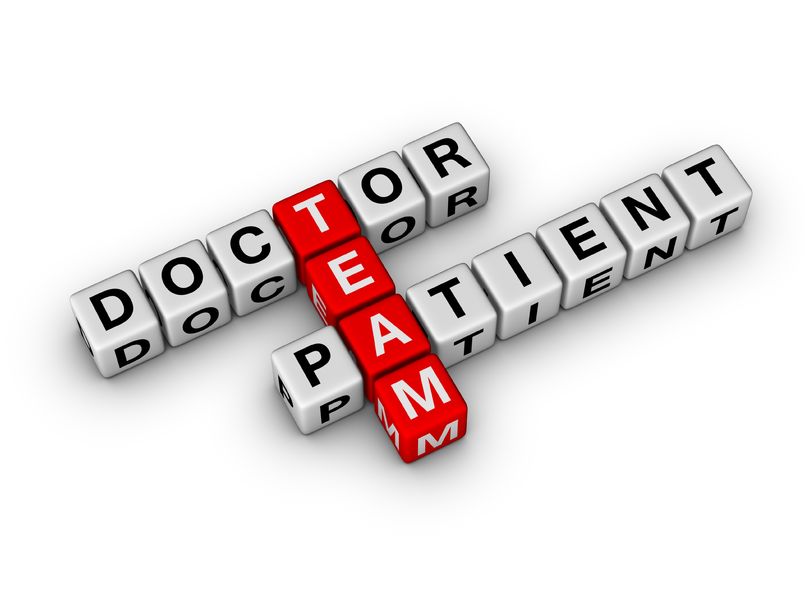 Everyone goes to the doctor at some point. The visit is often brief, confusing and for many, stressful. Furthermore, it’s often just downright unpleasant. So if you must see your doctor, make the appointment worthwhile. Here are ten recommendations that will help you get the most out of your doctor’s visit.
Everyone goes to the doctor at some point. The visit is often brief, confusing and for many, stressful. Furthermore, it’s often just downright unpleasant. So if you must see your doctor, make the appointment worthwhile. Here are ten recommendations that will help you get the most out of your doctor’s visit.
- Before the appointment, give some thought to what you’d like to achieve – When asked, nearly all my patients simply say “not to have the problem anymore”. Hopefully, that is an option, but it may not be or it may be, but at a very high and perhaps unacceptable physical, emotional and/or financial cost. So think a little deeper: What are you willing to do to get cured? Take medications? If so, how long? At what risks? Have injections? Surgery? How long of a treatment time are you willing to undergo? And just in case a cure will be too “costly”, give some thought as to what level of recovery you are willing to accept.
- Before your appointment, make a list of what you want to know by the end of your doctor’s visit – Hopefully your doctor will cover most of this without being prompted. But making a list helps you “hear” your doctor better because now he is answering your “questions” – And if he/she doesn’t cover all the issues that are important to you, you’ll now be prepared to ask.
- Bring someone with you or take notes – Patients forget up to 80% of what a doctor tells them…And that’s 80% of what they have heard and understood during their visit. Of all that we tell you, you will likely retain very little. Some of this information may be critically important to your recovery. By bringing someone with you or writing things down, you may not only remember more, but you may understand more as well.
- Communicate – Tell your doctor what you want them to know – what is important to you, if something hurts when they examine you, if you don’t understand, etc.. Although, many patients tend to believe that making a proper diagnosis requires some fancy test or imaging study, most good docs make their diagnoses from the story you tell them…That is, the answer to your diagnosis is usually in what you tell your doctor and the secret to your cure is in you following the plan. If you don’t communicate, it will be very hard for your doctor to help you. Essentially…
- If your doctor asks a question, answer as best and thoroughly as you can – By asking a question, your doctor is informing you what information they need to help you. Answer their specific questions as accurately as you can. Your diagnosis may be in the answer. Don’t shortchange them. And…
- Ask questions – Your doctor wants to help you. Help them do so. If you don’t understand, then you will either leave unhappy or will not have gained anything from the appointment. You surely won’t buy into the plan. This is a waste of time for both you and your doctor. The goal is to develop a team, a goal and a path to that goal. If you don’t understand it, then nothing’s been achieved.
- Let your doctor summarize their thoughts in their entirety – They may be laying out their “case” in a structured manner so that you get a complete view of the issues and a more thorough understanding of how they have arrived at your diagnosis and the plan. You may not agree with everything in the beginning, but the complete message may make more sense. Listen to what they say and then ask questions.
- Remember diagnosing can take time – Sometimes your doctor may know the diagnosis immediately, sometimes they won’t. Often your doctor’s visits will only narrow the possible diagnoses. The exact diagnosis may not be known until later. Some medical problems evolve over time. Although the symptoms may be great enough for you to identify them, the findings may not be great enough yet for your doctor to “see” them. Other diagnoses are differentiated from one another by how they respond to various treatments. Often developing a diagnosis is a process and not a one-time event. So if needed, give the process time.
- Understand and follow the plan – The plan may be a treatment or a method to help make a diagnosis. Either way, it is important that you follow it. Doing it partially or not at all will only delay your recovery. If you don’t agree with the plan, don’t believe you will follow the plan or don’t understand your role in it, discuss this with your doctor before you leave.
- Research your symptoms and diagnosis AFTER your appointment – There are a number of symptoms shared by multiple diagnoses. Googling symptoms can be confusing, scary, and often unproductive. Additionally, once you are “certain” of your diagnoses, it makes it harder for you and your doctor to have an open mind. This could jeopardize identifying the correct diagnosis… and ultimately jeopardize your recovery.
It is 5:00 am, and I haven’t slept one wink. I am enjoy your blogs, so I really don’t mind being awake now. Sincerely, your mother,
Mimi berg
Sorry to keep you awake. ? But glad your enjoying the posts.